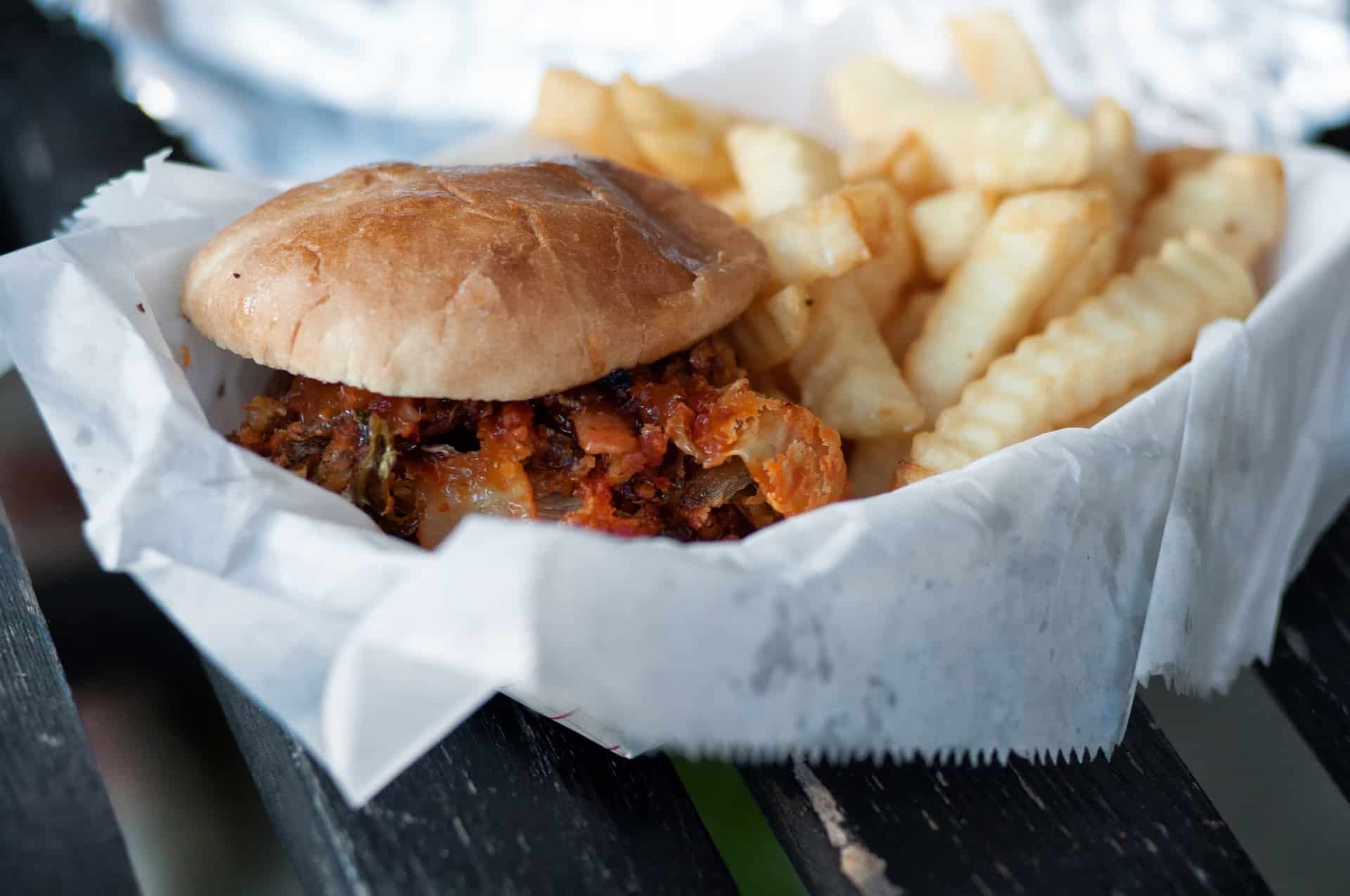Losing weight can be a tough and frustrating process, especially when you feel like you’re doing everything right but still not seeing results. However, sometimes it’s not about what you’re doing but rather what you’re not doing or what you’re doing wrong.
The challenging process of losing weight requires a lot of dedication and effort. However, many people find themselves struggling to lose weight, even when they are doing everything right. One of the reasons for this is weight loss sabotage, which can come from a variety of sources.

Understanding Weight Loss Sabotage
By understanding weight loss sabotage and taking steps to address it, you can increase your chances of success in the weight loss journey.
Weight loss sabotage can be defined as any behavior, action, or attitude that undermines a person’s efforts to lose weight. This can include anything from eating unhealthy foods to not getting enough exercise, to negative self-talk and criticism. It can also come from external sources, such as friends, family, and coworkers who may unintentionally or intentionally sabotage a person’s weight loss efforts.
So, we will explore 11 common habits that may hinder your weight loss efforts and tips to overcome them:
11 Weight Loss Don’ts To Watch Out For
1. Not having a Strong ‘Why’ you want to lose weight
Discovering the real reason behind wanting to lose weight is crucial for setting meaningful goals and maintaining motivation. Superficial reasons such as pressure from others or purely aesthetics reasons often don’t provide the long-lasting motivation needed to achieve and sustain weight loss. So, give yourself time to self-reflection, determine health goals and think of how your quality of life will improve.
Therefore, you will maintain a positive mindset which is crucial in this journey. Focusing on progress rather than perfection, practicing self-compassion, and setting realistic goals can all help you achieve your weight loss goals. If you need an extra help, money has been proven to be a simple yet powerful and effective motivator. Think about it – it’s what makes you keep on showing up to work each day even if you’d rather just stay in bed!
HealthyWage is an awesome company that has partnered with the likes of Kobe Bryant to encourage people to lose weight by providing a financial reward when they achieve their weight loss goals. You can complete a personal weight loss challenge or get a group together and compete as a team.
2. Emotional Eating
Emotional eating is a common habit that many people struggle with. It involves eating to silence or reduce negative emotions, such as stress, anger, fear, boredom, sadness, and loneliness. Emotional eating can disrupt weight loss efforts by causing you to consume more calories than your body needs.
To combat emotional eating, you can try to identify the triggers and find alternative ways to manage your emotions, such as drink water, exercise, meditation, write on paper or talk to a friend.
3. Weekend bingeing

Weekend bingeing can undo all the progress made during the weekdays. A study in the Journal of the Academy of Nutrition and Dietetics found that the typical non-chain restaurant meal contained 1205 calories.
However, it is generally recommended that an average female consume about 2000 calories to maintain weight and 1500 calories for weight loss. A 1495 calorie meal leaves only 5 calories for the entire day, which is neither healthy nor realistic. Therefore, it is important to be mindful of calorie intake during the weekends and avoid overindulging in high-calorie meals.
4. Drinking your calories
According to a study by the American Journal of Clinical Nutrition, 21% of the total daily energy intake in the general American population comes from beverages, which means that a significant number of calories consumed daily come from drinks. Many of these drinks, such as soda, fruit juices, energy drinks, and alcohol, are artificially sweetened and contain no nutrients, providing little to no satiety. As a result, people often feel hungry despite consuming a large number of calories.
To avoid drinking your calories, it is recommended to choose water as your beverage of choice. Consuming fewer calories from drinks can help with weight loss and overall health. It is important to be mindful of the calorie content of the drinks you consume and to make healthier choices whenever possible.
5. Not getting enough sleep

A lack of sleep can also slow digestive function and increase cortisol levels, which can lead to overeating. To ensure a good night’s sleep, here are some tips that can be followed.
First, set a reasonable time to go to bed and stick to it. It’s very important to unplug and avoid using electronic devices in bed. Meditation has proven relaxation benefits and is a wonderful way to wind down before bed. Setting the room temperature to 60-67 degrees, which is considered optimal for sleeping, can also help. Finally, make sure to have a good, supportive mattress and pillow.
If you are unsure of the quality of your sleep, investing in a smartwatch with a sleep tracker like this Fitbit one or this Apple Watch can be helpful. These devices monitor how long and how well someone sleeps, providing valuable insights into their sleep patterns.
6. Going “fat-free”
Fat has long been considered the devil when it comes to weight loss. Walk down any aisle in the grocery store and you’ll see “fat-free” advertised on everything from milk to mayonnaise.
However, it’s essential to recognize that not all fats are created equal. While it’s prudent to steer clear of harmful trans fats, certain fats, such as monounsaturated and polyunsaturated fats, offer substantial health benefits and can play a role in achieving weight loss goals. Additionally, even certain types of saturated fats, such as those found in coconut oil, can be advantageous for weight loss.
Monounsaturated fats, renowned for their ability to lower cholesterol levels, contribute to a reduced risk of coronary heart disease. Polyunsaturated fats, found abundantly in foods like avocados, provide essential omega-3 fatty acids that may not only lower the risk of heart disease but also mitigate the likelihood of developing Type-2 diabetes.
Furthermore, the satiating nature of dietary fat cannot be underestimated. It prolongs the feeling of fullness, reducing the temptation to indulge in empty-calorie snacks.
7. Too much cardio, instead of weight-training

Don’t waste too much time doing cardio, if what you really want to do is lose weight focus in weight training. While cardio is important for weight loss and overall cardiovascular health, too much cardio can have negative effects on the body. Instead, regular weight training can increase calorie burning even when not exercising, leading to more fat burning and a higher metabolism.
A personal trainer can help set up a weight training routine, but for those on a budget, there are also online resources such as Aaptiv. I love Aaptiv because it’s like having your own personal trainer with you 24/7, at a fraction of the cost. There are so many excellent workouts, so whether you’re into weights, yoga, running, cycling, elliptical etc., then Aaptiv will likely have an awesome routine!
Incorporating weight training into an exercise regime can also prevent injury and improve overall fitness. It is important to find a balance between cardio and weight training to achieve optimal results.
8. Avoiding Carbs
Carbohydrates are not the enemy when it comes to weight loss. In fact, our bodies require carbohydrates to function properly as they are the body’s main source of fuel. The key is to consume the right kind of carbohydrates and to avoid overeating.
There are two types of carbohydrates: simple and complex. Simple carbohydrates are sugars and are low in fiber, causing major spikes in blood sugar levels. Examples of simple carbohydrates that should be avoided include candy, refined white bread, pasta, white rice, soda, and sugar.
On the other hand, complex carbohydrates are considered “good carbs” and should be consumed more often. Unlike simple carbs, complex carbohydrates contain fiber and take longer for the body to break down. This provides more sustained energy for the body and doesn’t cause rapid spikes in blood sugar levels.
When trying to lose weight, it’s important to focus on consuming complex carbohydrates and avoiding simple carbohydrates. This can be achieved by incorporating more whole grains, fruits, and vegetables into the diet while limiting processed and sugary foods.
9. Not Drinking Enough Water
Drinking enough water is crucial for weight loss, as it helps to flush out toxins, reduce hunger, and improve digestion. Dehydration can cause you to mistake thirst for hunger and eat unnecessary calories. To ensure enough hydration, you should aim to drink at least eight glasses of water per day.
A great tip for this habit is to fill 3 bottles of water in the morning so you know what to drink. You can add a little lemon to one, sliced cucumbers to the second, and a little salt to the third. There are also infusion water bottles available on Amazon that can make this process easier. You can get this infusion water bottle for cheap on Amazon.
Related Post:
- 10 Fresh Fruit Infused Water Recipes
10. Eating hidden sugar
Sugar is a sneaky ingredient that can be found in many processed and pre-packaged foods. Shockingly, there are 257 different names for sugar, making it difficult to spot on ingredient labels. Some common foods that contain high levels of hidden sugar include soda, non-fat fruit yogurt, condiments like BBQ sauce and ketchup, salad dressing, granola bars, bread, pasta sauce, fruit juice, and flavored coffee drinks.
To avoid consuming too much hidden sugar, it is recommended to opt for healthier alternatives such as water, Greek yogurt sweetened with fresh berries, mustard, olive oil, avocado oil, fruit, sugar-free 100% whole grain bread, homemade pasta sauce, water flavored with berries, lime, lemon, cucumber, or mint, and black coffee or herbal tea.
It is important to be aware of the different names for sugar and to check ingredient labels when purchasing processed or pre-packaged foods. By making small changes to one’s diet, it is possible to reduce the intake of hidden sugars and improve overall health.
11. Skipping Meals
Skipping meals, especially breakfast, can lead to overeating later in the day and hinder weight loss progress. Eating a healthy, nutritious breakfast can help you restore glucose levels, provide energy for the day, and reduce the risk of type-2 diabetes and heart disease.
To avoid skipping meals, you can plan your meals in advance and keep healthy snacks on hand. Also try to start eating protein in your first meal, that will help you in your weight lost process.
Recognizing these habits is the first step towards making positive changes in our lives. What’s clear is that sustainable weight loss is not achieved through extreme measures or quick fixes but through the adoption of healthy, balanced habits that can be maintained over the long term. It’s about fostering a positive relationship with food, exercise, and our bodies.

